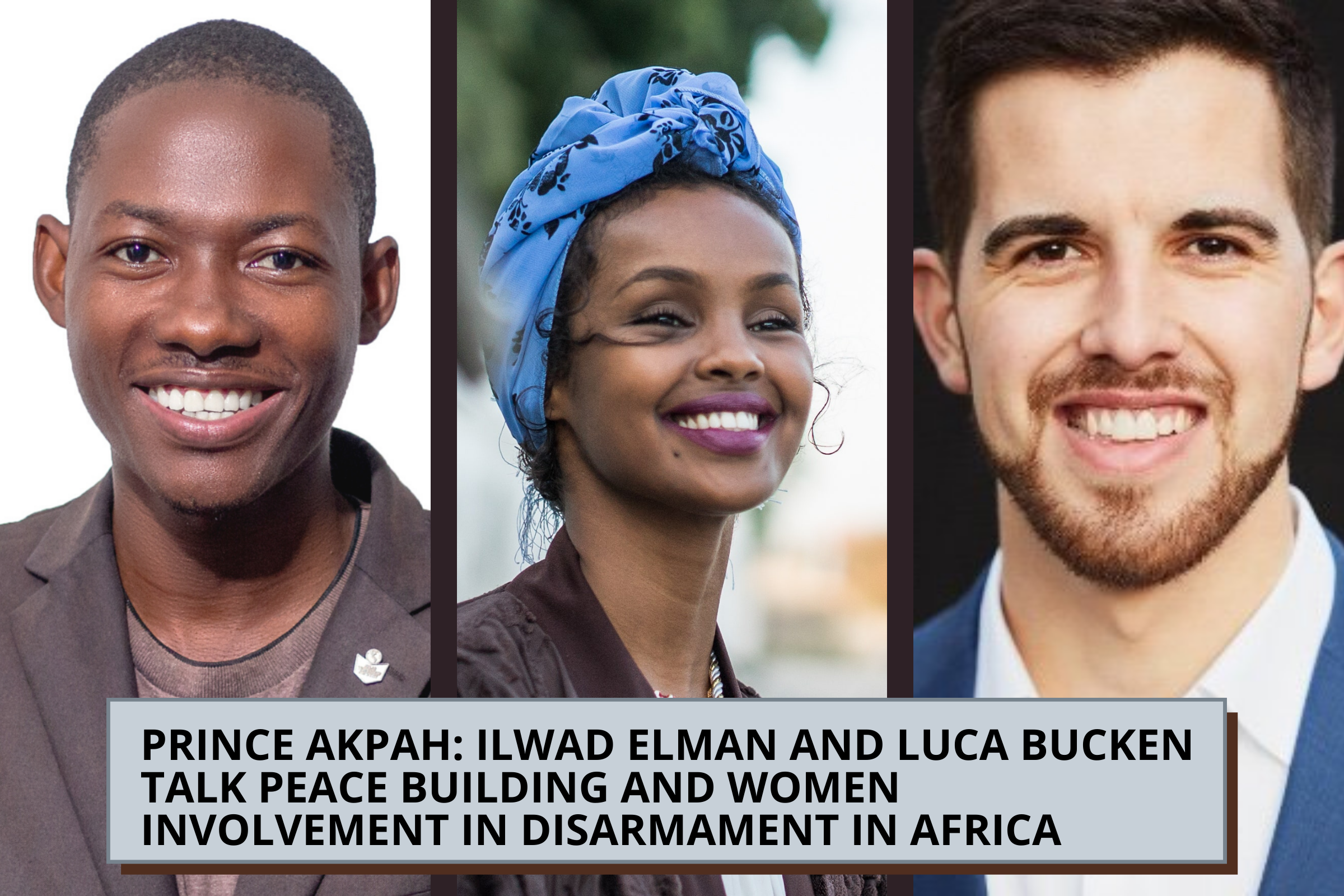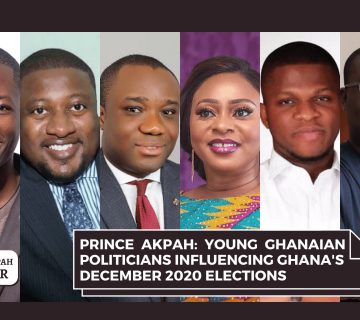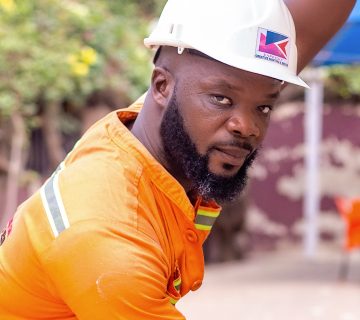As activities for the 2020 16 Days of Activism against Gender Based Violence are rounded up and the world continues to cope and deal with the coronavirus pandemic, various organisations in Africa still continue to show a lot of commitment towards their purpose of building an Africa that is safe, inclusive and peaceful.

In Somalia, the Elman Peace Centre, a notable women-led organisation, continues to blaze the trail in the field of peace building, sexual and gender based violence, human rights and job creation which has earned them the merit to become the Focal Point organisation in East Africa for the Gender Equality Network for Small Arms Control (GENSAC) joining its membership from Latin America, the Caribbean, Western Balkans, Ukraine and other parts of Africa to advance gender responsive responses to small arms control.
Through GENSAC, a platform is provided for women to effectively participate in policy and decision making activities at high levels and fostering a stronger operational support for more gender-sensitive design and implementation of effective responsive Small Arms control.
To discuss peace building in Africa, women involvement in disarmament, and the contributions of GENSAC in East Africa, I had an insightful conversation with the 2019 Nobel Peace Prize nominee, and Chief Operating Officer, Ilwad Elman and Head of Policy and Programs, Luca Bucken from the Elman Peace Center based in Somalia.

Prince Akpah: Can you tell us a little about the Elman Peace Center, what your organization does and what are its objectives?
Ilwad Elman: At the Elman Peace Centre, we pursue a vision of inclusive peace that is defined by justice and equality – a peace that is for everyone. To achieve this objective, we work closely with communities that are currently the most vulnerable and marginalized, who are subjected to human rights abuses, and who probably feel the most remote from this very goal of inclusive peace. The broad variety of programs that we run, include the protection and assistance to gender-based violence survivors, the offering of free education and leadership training to girls and young women, providing livelihood opportunities to IDP communities and minority groups, and operating centers to rehabilitate and reintegrate children disassociated from armed forces and groups.
Prince: How has your center influenced peace building initiatives in Somalia?
Luca Bucken: Elman Peace Centre has been part of a young but strong movement, in Somalia and globally, to show that grassroots civil society is the most important stakeholder for sustainable peacebuilding. To put an end to protracted conflict, investments into education, gender rights, culture, sports – in short community – is equally, if not more important than military or government-focused solutions. This recognition that the Elman Peace Centre has been advocating for since more than two decades is slowly setting in. In this context, COVID-19 also showed us once more that it was local organisations, and in most cases women frontline workers, who stayed on the ground throughout the pandemic and carried the necessary trust and access in the communities to do the work that needed to be done. When we now speak about the COVID-19 recovery, our message is that to build back better, we need better builders.
Prince: What has been the greatest challenge in your efforts to promote peace in Africa?
Ilwad: I believe that injustice is our greatest impediment to peace in Africa. Whether we look towards the developments in Uganda, Sudan, Nigeria, or Somalia – before a first shot is fired, we can identify the clouds of conflict in the mistreatment and oppression of communities, in rising levels of inequality, in the exclusion of particular groups from society. What gives me hope is almost 60% of young Africans are under the age of 24 and roughly 75% of Africans are younger than 35 years. Across the continent, there is a shared feeling that young Africans are tired of conflict, corruption, and injustice and that we are together we are rising.
Prince: Small arms account for over 32% of conflict deaths and your organization created a campaign to put an end to such violence. Can you tell us more about the “Drop The Gun, Pick a Pen” campaign?
Luca: Our recipe for peace building “Drop the gun, Pick up the pen” is about creating alternative livelihoods for young men and children at the front lines, and it started with Ilwad’s father, almost 30 years ago. He was working in a much different context, mostly engaging young people who were being co-opted by warlords, but today we are still using the same approach of combining psychosocial support with vocational training and education towards livelihood building. Young people who graduate from our programs become ambassadors to their peers. We see that it works in the cross-generational communities of solidarity that we have built. Now we’re scaling outside of Somalia and bringing our solutions to other countries, like Mali, Cameroon, Nigeria, and other epicenters of violent extremism.
Prince: Women are uniquely affected by conflicts and are often left out of disarmament and peacebuilding efforts. How is the Elman Center addressing gender inequality in peace building efforts?
Ilwad: We are a women-led organization and strongly believe that when we amplify the agency of women and remove barriers to their participation, our communities become more safe, peaceful and prosperous. This is also and especially true for processes that are traditionally government-led, such as disarmament, peace, and reconciliation efforts. We see our mandate and theory of change in this context to rest on three pillars. Firstly, ensuring that girls and women are protected against violence, an objective we pursue, amongst others, through our Sister Somalia safe houses and rape crisis centres. Secondly, women are given equitable opportunities to access education and capacity-building, which we do through our Girls Leadership Academy and women entrepreneur programmes. And thirdly, to advocate that barriers to participation, tools of oppression against women are removed in our societies and politics.
Prince: Your organization is the East Africa focal point of the Gender Equality Network for Small Arms Control (GENSAC). How do networks like GENSAC contribute to advance women’s participation in peace building efforts?
Ilwad: We are excited about the launch of GENSAC and humbled to serve our communities as the first focal point for East Africa. Whether it is for advocacy, the exchange of best practices, or mutual support and protection, we know the invaluable contributions that strong knowledge and solidarity networks, such as GENSAC, make. GENSAC is unique in how it brings a great variety of different stakeholders from grassroots civil society to government representatives together to promote gender-inclusive arms control solutions. Although women are often the most affected groups by illicit small arms use and smuggling, their role and potential contributions in controlling them is consistently overlooked. With GENSAC, we have a strong, global platform to change that.
Prince Akpah is a writer and Curator of the Global Shapers Dodowa Hub of the World Economic Forum




